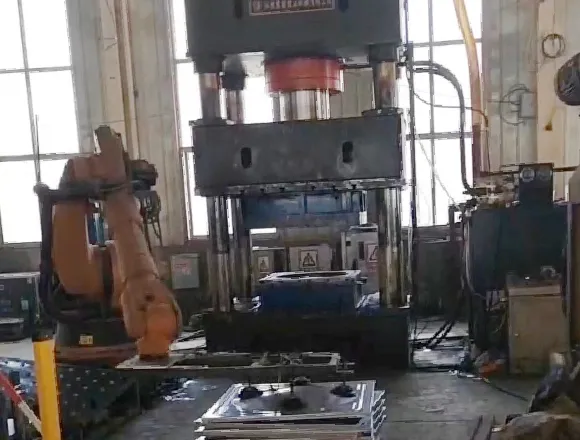loading...
- No. 9, Xingyuan South Street, Dongwaihuan Road, Zaoqiang County, Hengshui, Hebei, China
- admin@zjcomposites.com
- +86 15097380338
- Welcome to visit our website!
fiberglass water tank
The Advantages of Fiberglass Water Tanks
In today's world, the demand for efficient water storage solutions has never been higher. One of the materials that has gained immense popularity for water tanks is fiberglass. Fiberglass water tanks offer a combination of strength, durability, and versatility, making them an excellent choice for both residential and commercial water storage applications. In this article, we will explore the benefits of fiberglass water tanks and why they are a smart investment for anyone in need of a reliable water storage solution.
Durability and Longevity
One of the primary advantages of fiberglass water tanks is their durability. Made from a composite of glass fibers and resin, these tanks can withstand extreme weather conditions, including intense sunlight, heavy rain, and freezing temperatures. Unlike traditional metal tanks, fiberglass is resistant to rust, corrosion, and decay, which means that they can effectively last for decades with minimal maintenance. This durability ensures that the investment in a fiberglass water tank pays off over time, reducing the need for replacements.
Lightweight and Easy to Install
Fiberglass water tanks are significantly lighter than tanks made from other materials such as steel or concrete. This lightweight characteristic makes it easier to transport and install the tanks, especially in locations where access may be challenging. The ease of installation can lead to reduced labor costs and shorter project timelines, making fiberglass a cost-effective option for water storage solutions.
Versatility in Design
Fiberglass water tanks come in various shapes and sizes, which allows them to fit in a wide range of spaces and meet different storage needs. Whether it's a small tank for residential use or a large tank for agricultural applications, fiberglass tanks can be customized to suit specific requirements. Additionally, their design can also incorporate features such as internal baffles to enhance water quality and prevent sediment buildup, making them suitable for various uses including drinking water, irrigation, and industrial applications.
fiberglass water tank

Low Maintenance Requirements
Maintaining a water tank is crucial for ensuring water quality and prolonging its lifespan. Fiberglass tanks are relatively low maintenance compared to other materials. They do not require regular painting or coatings to prevent corrosion, and because they resist algae and microbial growth, cleaning them is simplified. With proper initial setup and an occasional inspection, fiberglass tanks can operate efficiently with minimal upkeep.
Cost-Effectiveness
While the initial cost of fiberglass tanks may be higher than some conventional options, their longevity and minimal maintenance requirements offer significant savings in the long run. The combination of durability, low maintenance, and reduced risk of leaks or failures makes fiberglass tanks a cost-effective solution for water storage. They also help in conserving water by reducing losses, ensuring that users make the most of their water resource investment.
Environmental Considerations
As environmental awareness grows, choosing sustainable options is becoming increasingly important. Fiberglass is a more environmentally friendly choice compared to metal tanks, as it often requires less energy to manufacture and is recyclable. Furthermore, because fiberglass tanks can prevent water contamination, they contribute positively to environmental conservation efforts.
Conclusion
In summary, fiberglass water tanks provide exceptional benefits that cater to a variety of water storage needs. Their durability, lightweight design, versatility, low maintenance requirements, and cost-effectiveness make them a superior choice for anyone considering water storage solutions. As technology advances and the need for sustainable practices increases, fiberglass tanks stand out as a reliable option for both residential and commercial applications. Investing in a fiberglass water tank not only provides peace of mind but also a long-term solution to water storage challenges.
-
The Rise of FRP Profiles: Strong, Lightweight, and Built to LastNewsJul.14,2025
-
SMC Panel Tanks: A Modern Water Storage Solution for All EnvironmentsNewsJul.14,2025
-
GRP Grating: A Modern Solution for Safe and Durable Access SystemsNewsJul.14,2025
-
Galvanized Steel Water Tanks: Durable, Reliable, and Ready for UseNewsJul.14,2025
-
FRP Mini Mesh Grating: The Safer, Smarter Flooring SolutionNewsJul.14,2025
-
Exploring FRP Vessels: Durable Solutions for Modern Fluid HandlingNewsJul.14,2025
-
GRP Structures: The Future of Lightweight, High-Performance EngineeringNewsJun.20,2025
